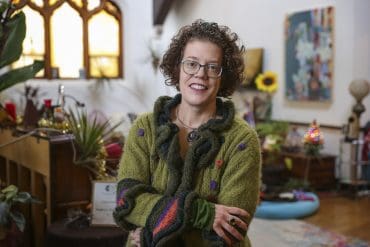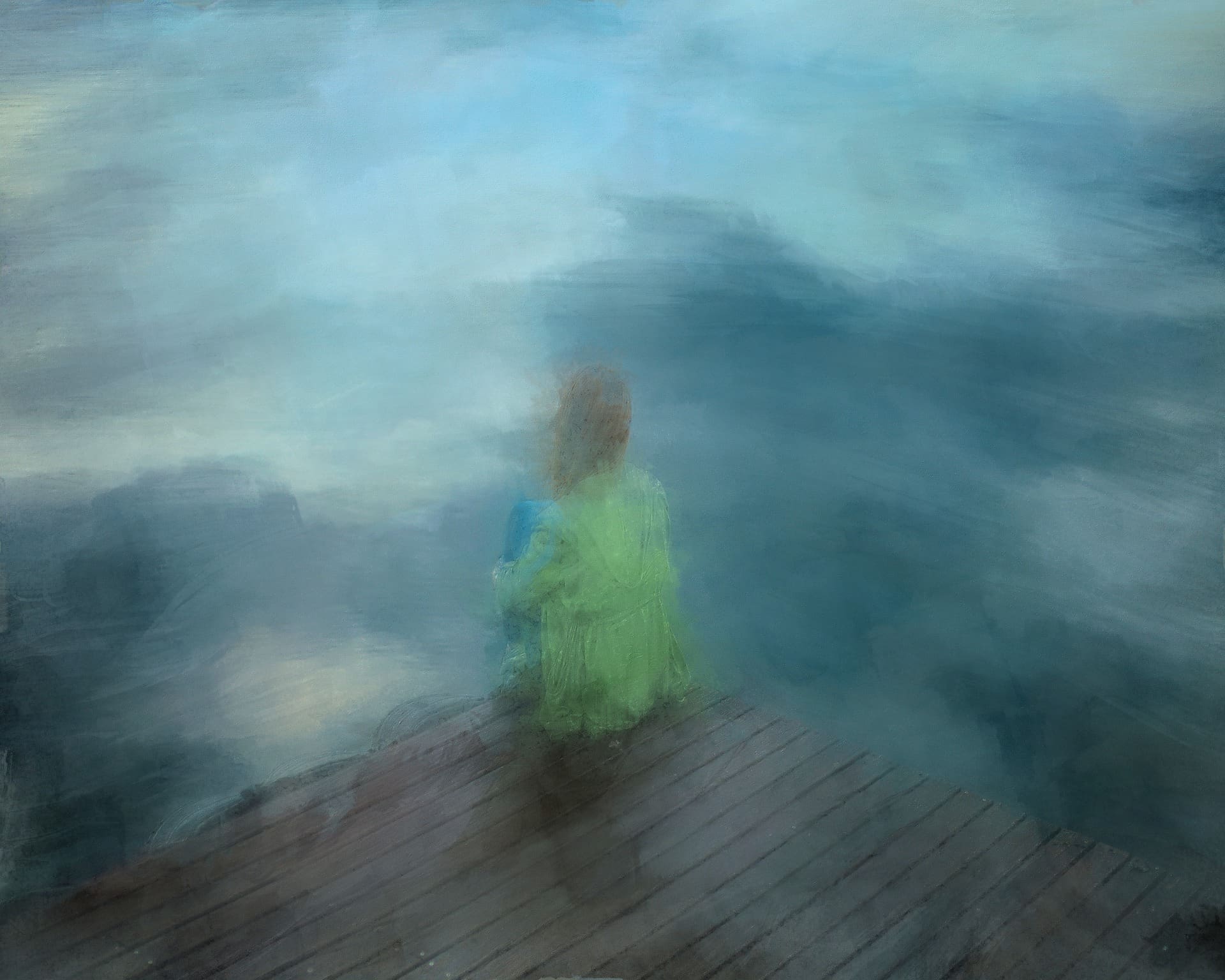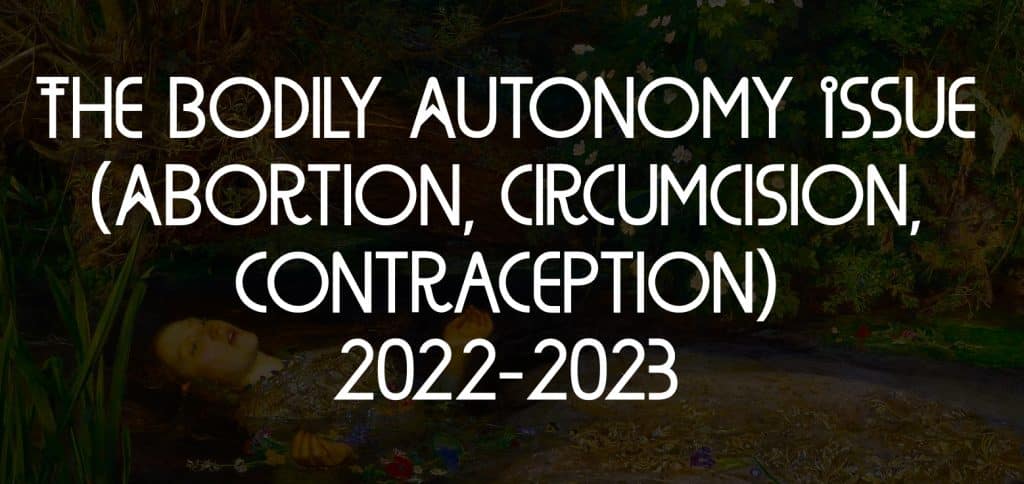Visitation, an Autoethnodrama in One Act
Artwork by Johnny Gunn
Author’s Memo
In this autoethnodrama, a woman terminates a pregnancy without telling her husband. I am from Granite City, Illinois, a steel town in which The Hope Clinic, one of the first abortion clinics in the country, opened in the late 1970s, directly across of St. Elizabeth’s hospital. The doctor and his wife were kidnapped in the 1980s, and, in the end, safely returned. The parish priest confronts the wife on her choice. Ironically, he prompts the dissolution of the marriage and open rejection of belief by the wife, along with male-bonding with the husband.
I grew up Roman Catholic. In fact, my mother was a Catholic grade school teacher. One aspect of growing up Catholic is exposure to the parish priest’s attempt to address complex and real-live issues of parishioners in relation to the rigid teachings of the Church. Also, in the past, Catholic priests were given little pastoral training, so they often fumbled in their attempt to help their parishioners.
I am not Catholic today. Not even Christian, in even the general sense. I am not ambivalent to the effect of the Catholic church both on the United States and on the world. For me, there is no way to avoid Catholic teaching as misogynistic. For example, let’s take abortion off the table as not an option. One way to minimize abortion is comprehensive sex education and easy access to contraceptives. Yet, the Catholic Church opposes this, too. The inability to control pregnancy falls squarely on women. Unplanned and uncontrolled pregnancy minimizes chances for work and education for women and increases poverty. There are multiple studies to support this claim. I won’t list them here. They are easy to find.
Likewise, the threat of violence, a threat almost from men, exists for all women. Even a woman from a very privileged background might walk to her car alone at night. Or have an intimate male partner be physically violent, even in a small way. Given the social and legal limitations placed on women, the addition of violence compounds the challenges that women face in their everyday life and even more so in times of crisis. Part of men’s violence is cyclical: men experience violence as children or young men, which in turn conditions these men to commit violence. The husband in this play is a partially-disabled combat veteran who has not successfully addressed his own experience in the past and the present.
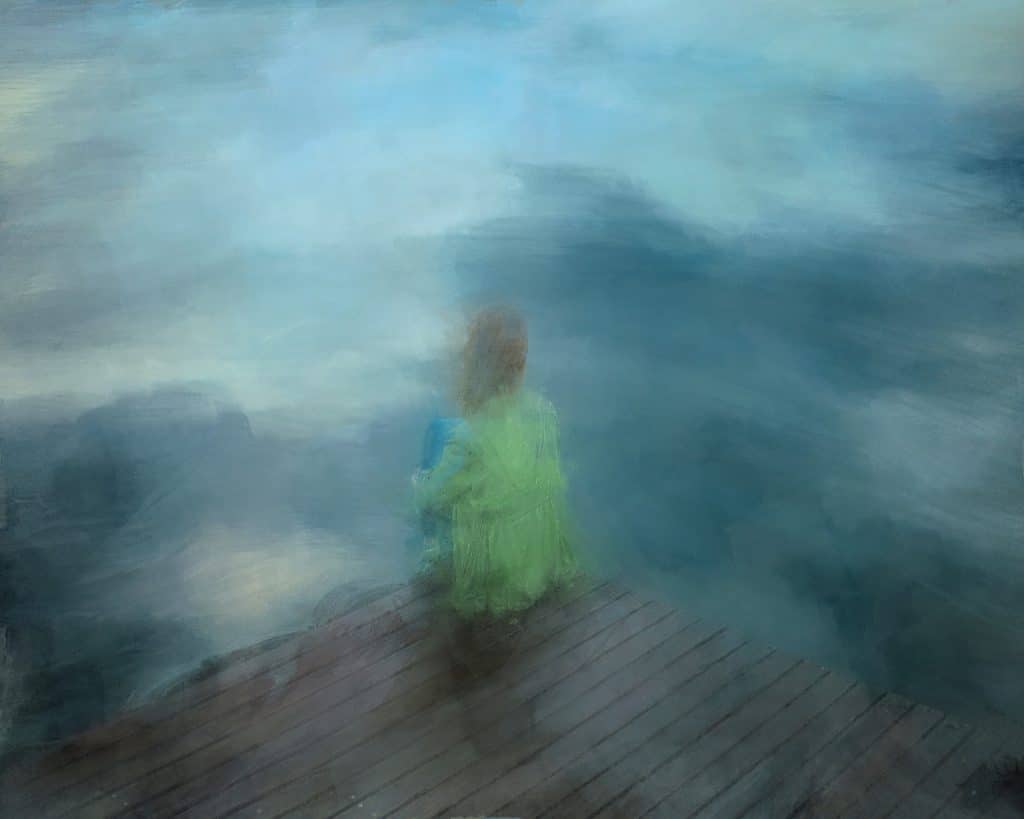
VISITATION
CHARACTERS
- ANNE – white; female; late 20s
- CHRISTOPHER – white; male; late 20s to early 30s
- FATHER (Catholic priest) – white; male; late 30s to early 40s
TIME
Daytime, summer, late 1970’s
SETTING
A track house living room and kitchen. The living rooms has a couch and love seat (two-seat couch). The kitchen has a table with chairs. A lattice screen acts as a room divider between the two rooms. A hallway leads to the implied off-stage bedrooms.
* * * * *
FADE IN
(ANNE is sitting on the kitchen table that is covered in notebooks and pens. She adjusts her sitting posture slightly and winces. She reaches to her abdomen. She is visibly in pain. CHRISTOPHER opens the back door, sits on the steps leading into the kitchen, and takes his work boots off.)
ANNE
Father will be here soon.
CHRISTOPHER
The gay one or the womanizer?
(CHRISTOPHER enters the kitchen. He looks in the fridge and takes out a six pack of beer that he brings into the living room. When he sits on the couch, he has to manually lift each leg. It’s unclear if he is simply tired from work or if his legs have a functional problem. He rather quickly works his way through the six pack as the action progresses.)
ANNE
Rumors.
CHRISTOPHER
That one priest. Gone overnight. And then this one.
ANNE
Gossip.
CHRISTOPHER
It’s your church, not mine. Are you going to clean up?
ANNE
Clean what?
CHRISTOPHER
That. On the kitchen table. The mess.
ANNE
What mess?
CHRISTOPHER
What mess?
(ANNE reads over a few pages.)
ANNE
You know what, I’ve been thinking.
CHRISTOPHER
Thinking?
ANNE
You don’t know—
CHRISTOPHER
That is for sure.
ANNE
I had . . . I have dreams, plans, goals.
CHRISTOPHER
To do what?
ANNE
Be a writer. An artist. Travel. How about this? Be happy.
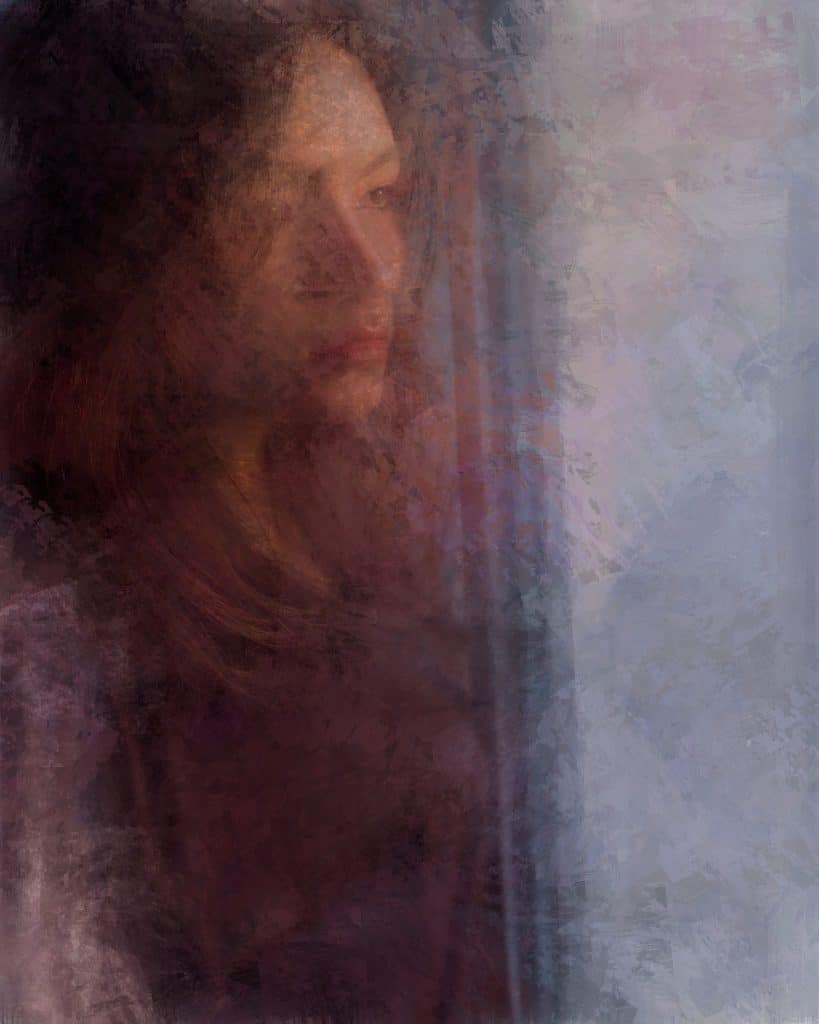
CHRISTOPHER
You aren’t happy?
ANNE
What is happiness?
CHRISTOPHER
That’s a rather weak line.
ANNE
Do you have a dream?
CHRISTOPHER
I dream of sitting here, drinking my beer, and relaxing. In quiet.
ANNE
Well, now you can die fulfilled.
CHRISTOPHER
It’s not quiet.
ANNE
It will be.
CHRISTOPHER
All I did was come home from work.
ANNE
I was working, too.
CHRISTOPHER
And somehow, I give offense.
ANNE
It’s not you.
CHRISTOPHER
“It’s not you. It’s me.”
ANNE
I mean it.
CHRISTOPHER
All the worse.
ANNE
Can’t you just . . . not exist?
CHRISTOPHER
This isn’t our usual give and take.
ANNE
What’s to give? What’s to take?
CHRISTOPHER
Quoting the Bible on a hot summer afternoon?
ANNE
That’s not the Bible.
CHRISTOPHER
Praise Jesus.
ANNE
I’ve got something to say today.
CHRISTOPHER
What neither of us have had the courage, or the decency, to say out loud.
ANNE
Which is?
CHRISTOPHER
Exactly what we are not going to say.
ANNE
That my life would have been better if you would have died in the war.
(A knock at the door.)
CHRISTOPHER
God has come to hold you to account.
(ANNE stands, walks through the living room, and opens the front door and FATHER enters.)
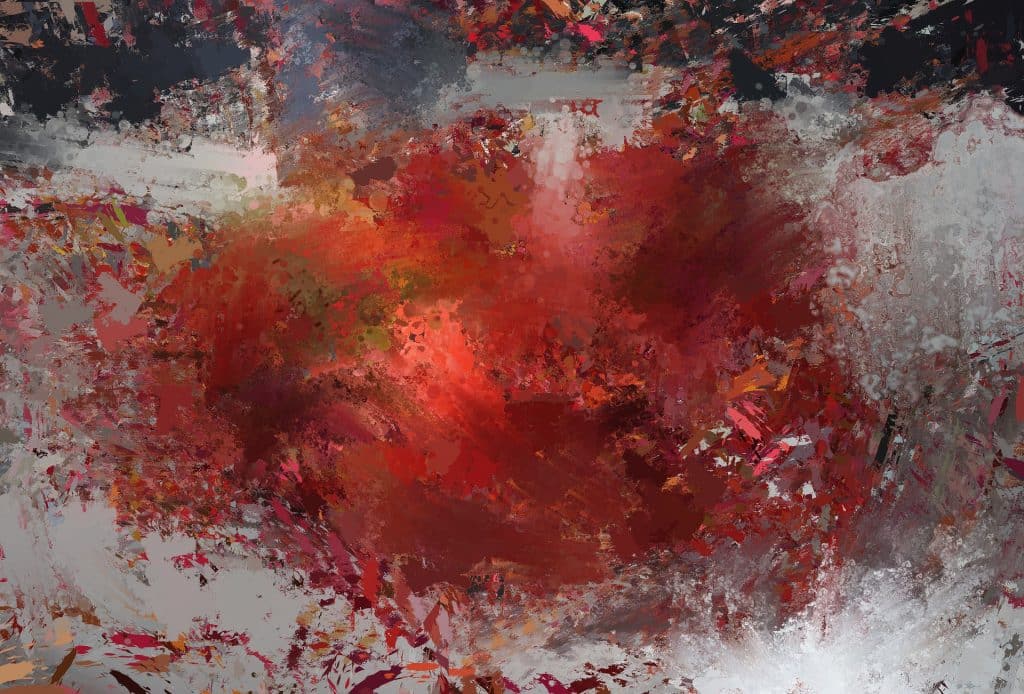
CHRISTOPHER
Father?
(CHRISTOPHER holds up his beer as an offer)
ANNE
Father—
FATHER
Have I come—
ANNE
Coffee?
CHRISTOPHER
She’ll corrode you from the inside out.
FATHER
Black. No sugar. (Speaking to ANNE)
(FATHER shakes his head “no” to CHRISTOPHER. ANNE goes into the kitchen.)
CHRISTOPHER
We can skip out for a beer between rounds.
(In the kitchen, ANNE pours two cups of coffee. She reaches behind the coffee percolator and pulls out a pill vial. She shakes out a pill and takes it with her coffee. She puts the vial back.)
FATHER
Fights on this early?
CHRISTOPHER
Fights on this early.
(ANNE brings a cup of coffee to FATHER. She keeps the second and stands in the doorway to the kitchen.)
ANNE
Father, the love seat?
CHRISTOPHER
Yes, Father. The love seat.
(FATHER sits on the love seat.)
FATHER
Your elm, in the front yard, it’s blighted. I see witches’-brooms on the top. Not very pretty.
ANNE
It’s a rude tree. Not to be pretty for you.
CHRISTOPHER
They can live for years while they’re dying.
ANNE
Especially when nurtured. He still gives it fertilizer.
FATHER
Everything has a right to life. Even the dying. How have you been? (Speaking to CHRISTOPHER.)
CHRISTOPHER
Good. Fishing on the weekends. I am a fisher of fish.
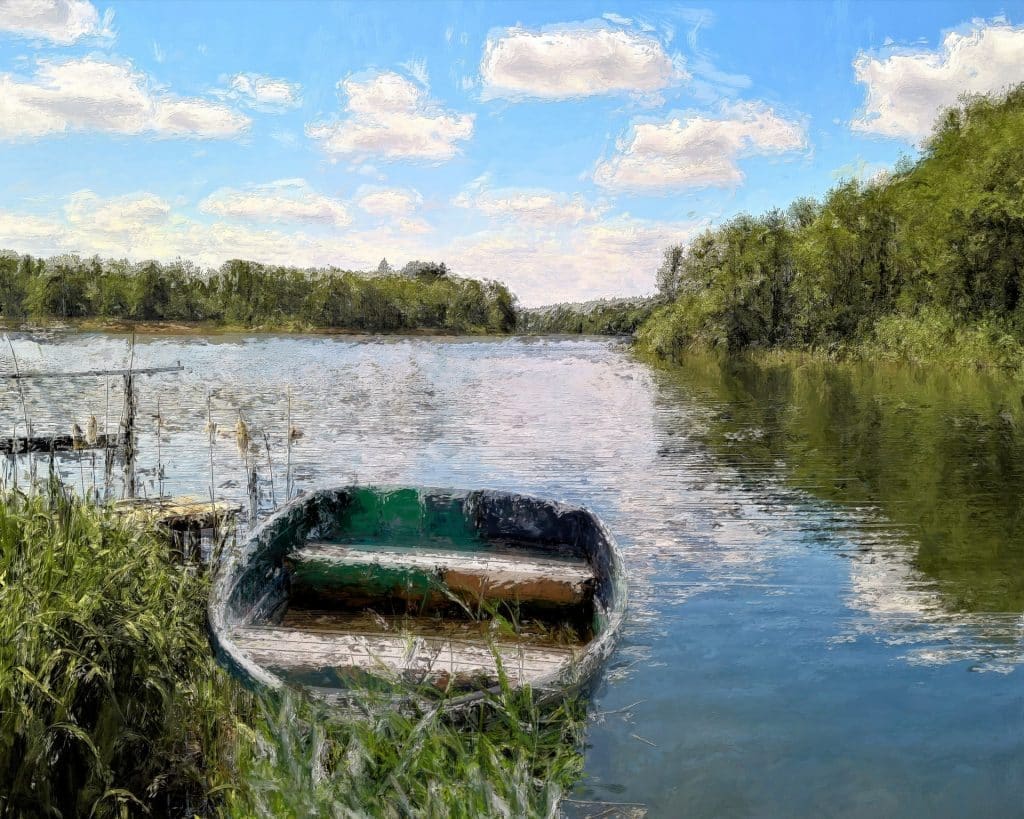
ANNE
Out all day, Father. In the summer he leaves before breakfast on Saturday and doesn’t come back until after supper Sunday.
CHRISTOPHER
It’s a blessing to both of us.
ANNE
Amen to that.
FATHER
The new job?
CHRISTOPHER
I’m in yard maintenance.
ANNE
He should move to the furnace soon.
CHRISTOPHER and ANNE
The bonus is better there.
FATHER
That is good. All work—
CHRISTOPHER
Father, please. No.
FATHER
And how have you been? (Speaking to the ANNE.)
ANNE
Me?
FATHER
Yes, you. How . . . have you . . . been?
CHRISTOPHER
That’s a TV-mystery tone of voice, Father. “How . . . have you . . . been?” (Mimicking Peter Faulk.)
FATHER
It’s nothing. Nothing much. Nothing much at all. Sister Mary. . . well, more than one of the Sisters, at the hospital, they pray, you know, for the unborn. They often hold vigil at that place, across from St. Molla’s Hospital.
ANNE
I’m familiar with the hospital, Father. My doctor is there.
CHRISTOPHER
What are you saying, exactly, Father? (Speaking to FATHER.) You didn’t go out with the Sisters, did you? (Speaking to ANNE.)
FATHER
The Church has so many challenges today.
ANNE
Yes, Father, the Church does have challenges.
FATHER
Many challenges.
ANNE
Challenges.
CHRISTOPHER
Does the Church have challenges? Seems it does.
(CHRISTOPHER finishes the beer, and again manually moves his legs as he stands. When upright, he raises the empty can to the priest, who again nods “no.” He puts the empty can on the coffee table, then goes into the kitchen, and stares into the fridge.)
FATHER
She has . . . recently . . . more than normal . . . been at that place . . . more often.
(He speaks lowly, not a whisper, just enough so that CHRISTOPHER in the kitchen can’t hear.)
CHRISTOPHER
What is the priest saying? (Speaking from the kitchen.)
ANNE
Father?
FATHER
It’s just she saw . . . She thinks that she saw . . .
ANNE
Father, no. Not here.

CHRISTOPHER
Secret Church teachings? Like the Masons? (Speaking from the kitchen.)
(CHRISTOPHER takes a six-pack of beer from the fridge, and then stands next to ANNE near the kitchen door.)
ANNE
Catholics can’t join the Masons.
CHRISTOPHER
The Church against funny hats and go-carts?
ANNE
That’s the Shriners.
CHRISTOPHER
More complicated than the Catholic Church.
FATHER
If the Sister (Speaking to ANNE) . . . if she were wrong, we could over look. . . but if the good Sister is in the right . . . and a sincere contrition and repentance . . . of course. You understand . . . how difficult . . . this is . . . for me.
CHRISTOPHER
Why . . . are you . . . speaking . . . like . . . this?
ANNE
Don’t be sarcastic. (Speaking to CHRISTOPHER.) What exactly is difficult for you, Father?
FATHER
Saying it. Saying it out loud. Saying any of it out loud. Sometimes things can be . . . how do we say . . . they are less real if they are never named. I entered a cloistered seminary when I was fourteen. They didn’t really prepare us for this type of thing.
ANNE
I’ve changed my mind. Say it, Father. Go ahead. Say it.
FATHER
I don’t know that I should—
CHRISTOPHER
A woman’s prerogative to change her mind..
(CHRISTOPHER makes his way to the couch. Again, he helps himself to sit and opens another beer.)
No. Don’t say it. I don’t know what “it” is, though I have my suspicions. If you don’t say it, then it won’t exist. Isn’t that right, Father? God spoke. And there was creation. No speaking. No creation. Silence doesn’t deny reality. Silence denies reality its reality.
FATHER
I think that it’s for the best. I won’t say it. Out loud. But you must know.
ANNE
No. Go ahead, Father. Once you say something, it’s like taking something away, a little bit of innocence. And you never get it back. Let’s all lose our innocence today.
CHRISTOPHER
You and me could lose our innocence later tonight.
ANNE
It wasn’t the first. What Father said.
CHRISTOPHER
Father didn’t say anything.
FATHER
I didn’t say anything.
ANNE
You didn’t have to. Things don’t need to be spoken to exist. Life doesn’t just happen out of nothing. Time passes, moment by moment, cause and effect, one after the other. Forever. The Sisters saw me at the clinic.
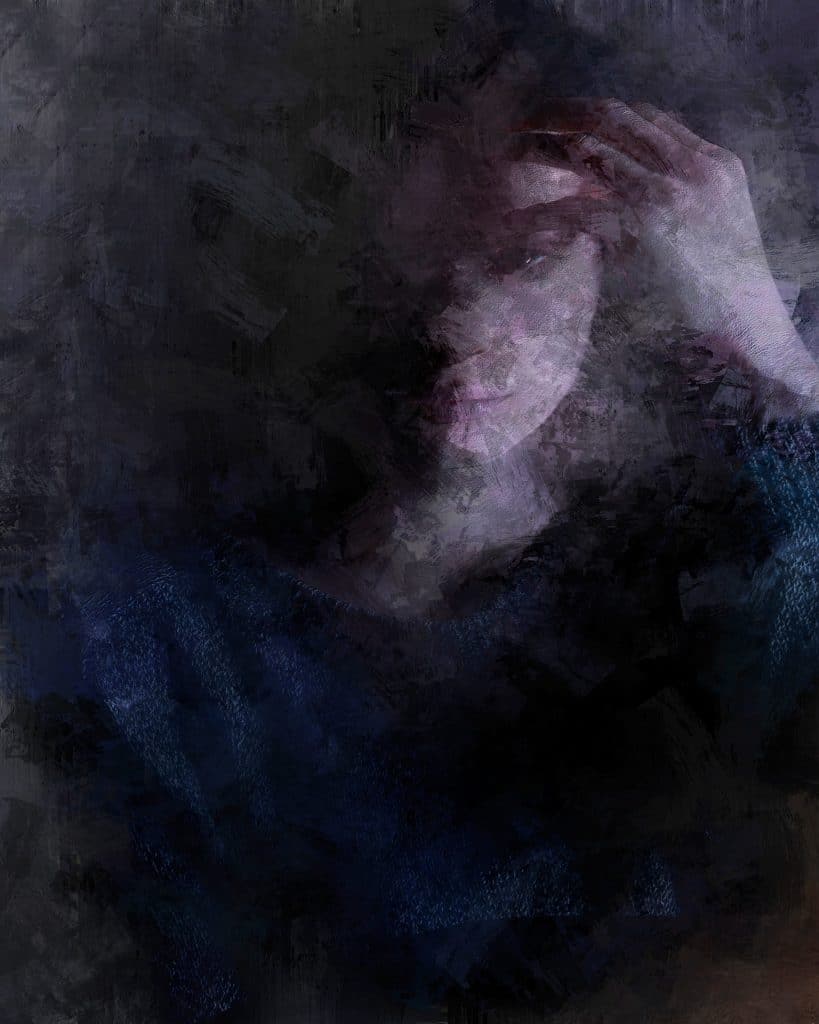
CHRISTOPHER
The clinic?
ANNE
The clinic.
CHRISTOPHER
Why the clinic?
ANNE
As a patient.
CHRISTOPHER
A patient?
ANNE
Yes. A patient.
CHRISTOPHER
What are you saying?
ANNE
That I did what Father said that I did.
FATHER
I didn’t say anything. In particular.
ANNE
And it wasn’t the first. The first was when you were gone.
CHRISTOPHER
When I was deployed.
ANNE
Gone.
CHRISTOPHER
Deployed.
ANNE
You volunteered for multiple deployments.
CHRISTOPHER
They needed me.
ANNE
Over three years.
CHRISTOPHER
They needed me.
(CHRISTOPHER begins to stand, as if he will charge ANNE, but his legs do not support his will. He almost falls, steadies himself on the edge of the couch.)
ANNE
I need you.
CHRISTOPHER
And who now?
ANNE
Who do you think?
CHRISTOPHER
Who could I not?
ANNE
Don’t say things like that.
(CHRISTOPHER charges ANNE and grabs her wrists. She drops the coffee cup. The priest intervenes. The two men reach for each other. CHRISTOPHER pushes at the priest, then swings, but unsteadily, and misses. The priest, without hesitation, lands a left hook against CHRISTOPHER’s head without dropping his coffee cup. CHRISTOPHER falls to the floor. His body is similar to Mary in the Pietà)
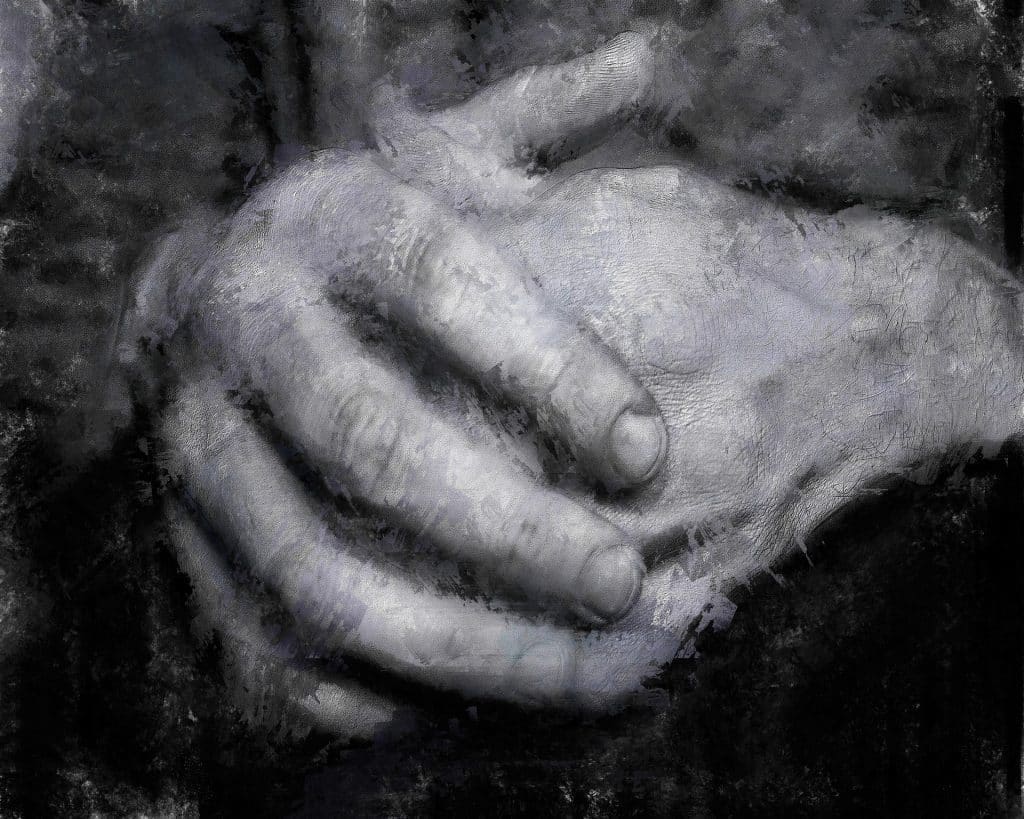
FATHER
God forgive me.
CHRISTOPHER
This is the first time that I’ve ever respected you, Father. First time I ever respected a priest, minister, rabbi, high poohbah, whatever you want to call them. Call you.
FATHER
I . . . I don’t know what to say.
CHRISTOPHER
You said enough. And you said all that needed to be said. You said what I . . . what we . . . already know. The guys at work. Their wives. It’s a small town. You did good, Father. You did real good. Now we really know how things are.
ANNE
It was yours.
FATHER
I didn’t say anything.
CHRISTOPHER
This time?
FATHER
Forgiveness . . . is to be had if asked for. God is gracious.
(FATHER reaches down to CHRISTOPHER. CHRISTOPHER waves him off and slowly, with effort, stands. ANNE lays down on the couch. Her body position is similar to Jesus in the Pietà.)
CHRISTOPHER
So, Father, what gives?
FATHER
Golden Glove. In high school. The Monsignor let me box through seminary. Said it was a good way to let go of tension. But once I was ordained, well, boxing is not becoming of a priest.
CHRISTOPHER
Can’t escape the violence inside of us, can we, Father?
FATHER
The flesh is weak.
CHRISTOPHER
Well, if you’d been on R&R during deployment with me, you’d know the flesh is quite strong.
Look at her. Like a stone. Girl, get up.
(ANNE sits up.)
ANNE
Come. (Motions to CHRISTOPHER.) Sit with me. (She pats the spot next to her.)
CHRISTOPHER
Are you drunk?
ANNE
Unfortunately, no.
CHRISTOPHER
I’m the one who’s drunk.
ANNE
Fortunately, yes.
(ANNE stands and pushes past the men and sits at a kitchen chair behind the screen that separates the living room from the kitchen.)
Forgive me, Father, for I have sinned. (She makes the sign of the cross.)
FATHER
I cannot hear your confession now.
ANNE
I have secrets to confess. Secrets I’ve even kept from myself.
CHRISTOPHER
You have secrets from me that you only tell a priest?
ANNE
Every wife has secrets from her husband.
CHRISTOPHER
I don’t have any secrets from you.
ANNE
You’d need an inner life to have secrets.
FATHER
If you need to confess your sins—
ANNE
Oh, Father. That’s not what I meant at all.
FATHER
You don’t want to confess?
ANNE
I do want to confess. Do you want to know what I’m confessing? I don’t believe any of it anymore.
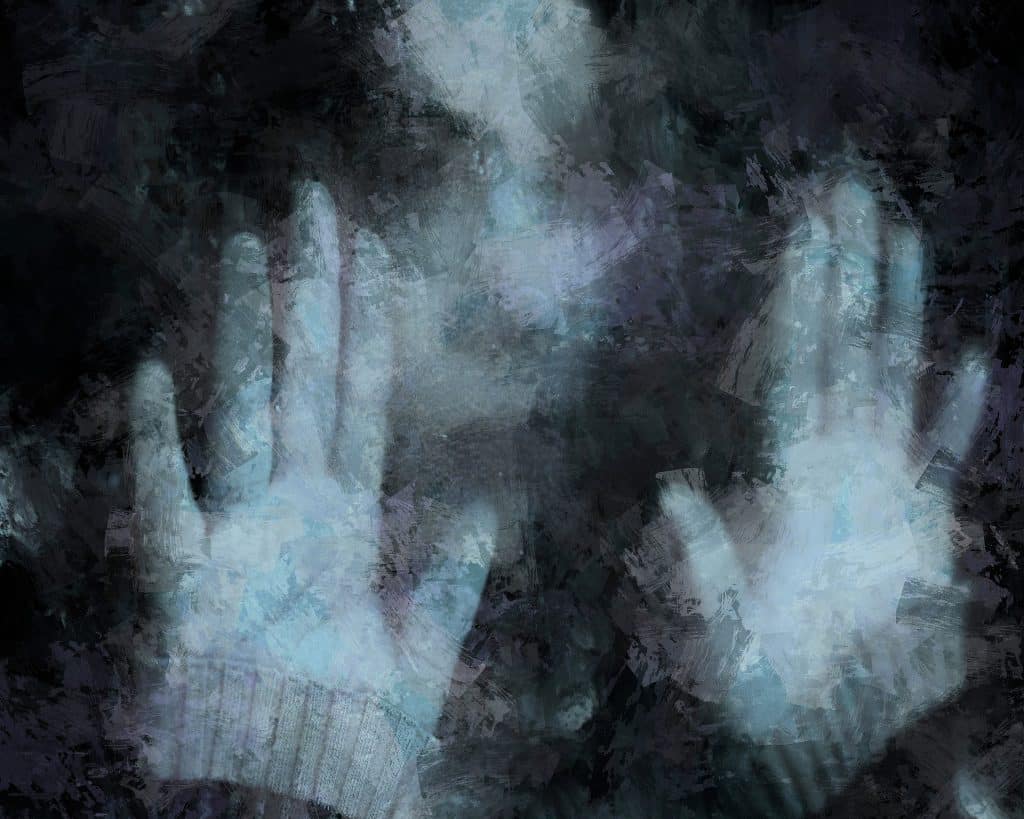
FATHER
You don’t believe in God.
ANNE
I believe, just not in God. Or the Church.
FATHER
Not in God.
CHRISTOPHER
Not in sin, either, it seems.
ANNE
You think I’ve sinned. And you, too. Both of you do.
CHRISTOPHER
I don’t believe in sin.
ANNE
Oh, but you do. More so than him. He thinks sin is real but God can erase sin. Just, poof, make it go away. You think sin is real and eternal. No salvation. Not damned if you do, damned if you don’t. Just damned.
CHRISTOPHER
That’s enough.
FATHER
Let her speak.
CHRISTOPHER
I said, it’s enough. How long? You. How long have you been like this?
ANNE
I can’t remember. Sometime when you were gone. I woke up one day. Next to some . . . man. Don’t look surprised. You suspected. You knew. You did the same. He was young. Handsome. Like you. But present. I can’t say something broke inside of me. Something was already broke. At that moment, I realized it. I’ve just pretended for years.
FATHER
The world is ill. Broken. Sinful. But God—
ANNE
No, Father. The “world,” as you call it, is not broken. But there is something broken in this world. That is for sure.
CHRISTOPHER
This has been my life since I got back. I don’t know how I could have been . . . Father, she has been derelict in her marital duties. So, if Sister So-and-so did see my dear wife at that clinic, I can’t be certain if I am supposed to be offended or grateful.
FATHER
Offended or grateful for what?
ANNE
My abortion.
FATHER
That word. Please don’t say that word.
ANNE
I can give you the details. Would you like the details?
CHRISTOPHER
Yeah, the details. Tell us how you spread your legs?
ANNE
I hate you.

FATHER
She doesn’t mean it.
(Without any hinderance from his legs, CHRISTOPHER turns the coffee table over. He pauses, out of breath, and falls to his knees. ANNE comes around the divider into the living room. She sits on the floor next to her husband and pulls him down onto her lap. Their body positions are suggestive of the Pietà.)
FATHER
This is really enough.
CHRISTOPHER
I’m sorry. I just . . . lost control.
ANNE
It’s over.
CHRISTOPHER
Over?
FATHER
Let me help you. You are in need.
ANNE
I can’t take help from a stranger.
CHRISTOPHER
The priest is no stranger.
ANNE
I meant you.
CHRISTOPHER
I didn’t offer you any help.
FATHER
I am no stranger.
(ANNE pushes CHRISTOPHER off her. She stands and walks to the front door.)
CHRISTOPHER
Where are you going?
ANNE
Away
CHRISTOPHER
What can I do?
ANNE
Make a wish.
CHRISTOPHER
For what?
ANNE
For what? For what else?
CHRISTOPHER
For love?
ANNE
For happiness.
CHRISTOPHER
Happiness doesn’t exit.
FATHER
Miracles do happen.
ANNE
No, Father. They don’t.
FATHER
We all live in the delusion of sin.
ANNE
We all do live in delusion. But not of sin.
(ANNE leaves through the front door.)
CHRISTOPHER
Come back.
FATHER
She will return.
CHRISTOPHER
She is gone.

FADE OUT
All images by Johnny Gunn from Pixabay
Richard Stimac published over thirty poems in Burningword, Clackamas, december, Faultline, Havik (Third Place 2021 Poetry Contest), Michigan Quarterly Review, Mikrokosmos (Second Place 2022 Poetry Contest; A.E. Stallings, judge), NOVUS, Penumbra, Salmon Creek Journal, Talon Review, Wraparound South, and others, flash fiction in BarBar, New Feathers, Paperbark, Proud to Be (SEMO Press), Scribble, and Talon Review. He has also had an informal read plays by the St. Louis Writers’ Group and Gulf Coast: Playwright’s Circle, a play published by Fresh Words and The AutoEthnographer, and an article on Willa Cather in The Midwest Quarterly.




